|
The LEGEND of WINSTON CHURCHILL
Listen to Darkest Hour on Sermon Audio....
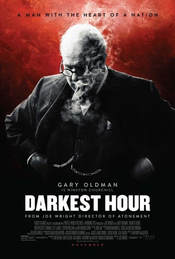
A Time of Defeat and Retreat
Darkest Hour is a British war drama focusing on Winston Churchill’s first month in office as Prime Minister of Great Britain, May/June 1940. Darkest Hour is a suspense-filled and engrossing historic drama set against the backdrop of the German Blitzkrieg which sent the British and French armies in headlong retreat.
A Time of Defeat and Retreat
Darkest Hour is a British war drama focusing on Winston Churchill’s first month in office as Prime Minister of Great Britain, May/June 1940. Darkest Hour is a suspense-filled and engrossing historic drama set against the backdrop of the German Blitzkrieg which sent the British and French armies in headlong retreat. Peace or War - That is the Question The near consensus of Churchill’s cabinet was to begin peace negotiations with Germany. Much of the suspense and drama of this film focuses on Winston Churchill’s determination to continue the war at any cost and to appeal directly to the people in the street to support his policy of “No surrender”, “No negotiations”, “Victory at all costs”. Spate of Churchill Films It is remarkable that in the last two years there have another three films on Britain in the 1940s: Dunkirk, Churchill and Their Finest (dealing with the British Ministry of Information assignment to produce a morale boosting film, presenting the debacle of Dunkirk as an inspiring victory). Government Support The film makers of Darkest Hour evidently received tremendous co-operation from government officials as a number of scenes are filmed in the Palace of Westminster, House of Commons, from within the underground War Room bunkers under Whitehall and even some scenes are shot within the grounds of Buckingham Palace. Award Winning Box Office Success Darkest Hour has done well at the box office, has been generally praised by critics and has been nominated for six academy awards in the American Oscars and the British Academy has nominated it for nine categories. Many are hailing Gary Oldman’s performance as Winston Churchill as the best of his career. Mixing Fiction with Facts Unfortunately, despite being set in authentic venues and at a most dramatic period of history, the film makers have taken some serious licences and introduced fictional events and fictional conversations, even from the lips of King George VI. Censoring Out the Spiritual Realities Even more seriously is what has been left out of the film, such as King George VI’s Empire wide called for Repentance and Prayer. On 26 May 1940, with the British Expeditionary Force in defeat and retreat, the king made an international broadcast, instructing all people of the British Empire to return to God in Repentance and humbly seek God for Divine intervention to enable the rescue of their beleaguered army from total destruction. Many millions of people across the British Isles and throughout the world flocked into churches, praying in shifts for deliverance. Churches were so packed that people were lined up for hours, waiting to get in to churches to take part in the organised national repentance. These would have made impressive scenes, but inexplicably are not even referred to in Darkest Hour. Impossible Breach of Protocol The film also includes a fictional scene of the king coming into Churchill’s bedroom and actually sitting on his bed to encourage him to press on with the war. Not only was such a breach of protocol unthinkable, but unnecessary, the king only needed to summon his prime minister to the palace if he wanted to talk to him. There is no hint in any historic record of such an anachronistic event taking place. Unbelievable Anachronism The film also takes a major detour from reality, by introducing a fictionalised event of prime minister Winston Churchill disappearing out of his vehicle in the midst of a crowd downtown in order to ride the underground in the tube and survey passengers as to their opinions regarding peace or continuing the war. Anyone who has read Churchill’s biographies would immediately recognise that this is another anachronistic Hollywood type of ploy. Winston Churchill was not a democrat and he never cared for the opinions of the masses, nor even of fellow parliamentarians. Rewriting History to Reimagine Churchill as the Stereotypical Reluctant Hero However, Darkest Hour seems determined to recast British legend Winston Churchill in a more 21st century mould, the reluctant warrior, filled with self-doubts and fears, determined to do the right thing, going to the common people to hear their concerns, choosing principle over politics and championing the cause of justice. If only all that had been true! Reality Beats Fiction The real Winston Churchill is far removed from the myth and legend built up by a never ending stream of hagiographical films. The truth is always stranger than fiction and more interesting! The Missing Advisors and Bankers In Darkest Hour, Winston Churchill seems to be an eccentric loner. However, the reality was quite different. Nowhere does Darkest Hour even hint at the existence of the Focus group of about a dozen key politicians and bankers who continuously advised and guided Churchill on every decision. Sir Henry Strakosch, the banker who regularly bailed Churchill out from his incessant and reckless gambling debts, makes no appearance in this film. Without Strakosch and the Rothchilds we would never have even heard of Churchill because they bankrolled his incredible political career. A Track Record of Disastrous Decisions At the start of World War One, it had taken just ten months for Churchill’s conduct as First Lord of the Admiralty to plunge him into political disgrace. In the Second World War, eight months sufficed to make him Prime Minister. It was not that his character had changed. Age had done nothing to temper his irrationalism and lend balance to his judgement. All the accusations of madcap, irresponsible schemes for disastrous action that had been made against him in 1915, could have been even more justifiably repeated in 1940. Political Opportunism However, he had been a prophet of doom in the political wilderness for seven years and with doom descending upon the heads of the politicians of Europe, Churchill had positioned himself for leadership, eloquent and pugnacious and as he put it, “untainted by appeasement”. Whenever the war went badly, the Prime Minister Neville Chamberlain bore the blame and if the war went well, Churchill was likely to steal the credit. Damage Control The First Sea Lord, Admiral Sir Dudley Pound, fought a brilliant series of delaying actions to block Churchill’s highly irresponsible projects, such as sending British warships into the Baltic Sea and invading neutral Iceland to seize control of their strategic sea ports. (Later when Prime Minister Churchill succeeded in invading Iceland.)
Watch the PowerPoint video on Vimeo....
British Battleship Sunk at Naval Base by U-Boat
Even with the sinking of the British Battleship, HMS Royal Oak, in Scapa Flow, the chief Naval Base of Britain during the world wars, somehow the blame was attached to the Prime Minister, rather than the First Lord of the Admiralty! Time Was on His Side Churchill was not too disturbed at the disastrous defeats suffered by the British Army on land, he was convinced that, as with the First World War, the allies had time on their side and that no matter how many victories Germany might win on land, the Royal Navy would ultimately bring Germany to its knees through economic blockade alone. Blockade and Bombardment However, Winston Churchill had even more faith in the Royal Air Force’s power to reduce Germany’s cities to rubble and to wreck her factories by saturation aerial bombardments from the colossal 4-engine bomber fleets being produced in Britain even at this early stage of the war. Violating Norwegian Neutrality On 16 February 1940, Churchill ordered HMS Cossack to violate Norwegian neutrality, to capture the Altmark, a German ship taking refuge in a fjord. He then ordered the Royal Navy to mine Norwegian coastal waters to cut off Germany’s iron ore supplies from Sweden shipped via Narvick and planned a bold naval action to invade neutral Norway. In this the French eagerly joined in. Disastrous Debacle Unwise bragging by Churchill of this upcoming seaborne operation tipped off the German Abwehr and as the Anglo French Naval invasion force approached Norway, they found themselves out-manoeuvred and pre-empted by Operation Weserübung with seaborne landings and Fallschirmjäger (Para troop) assaults. Churchill had disastrously underestimated his enemy and the Royal Navy lost an aircraft carrier, 2 battle cruisers, 7 destroyers, a submarine and 112 aircraft with over 6,000 casualties. The French also lost 2 destroyers and 2 submarines in this failed Allied invasion of Norway. This was the immediate context behind the opening scene of the Darkest Hour film. Bringing Down Chamberlain’s Government As Churchill himself admitted, his optimism had led him to ignore the difficulties and drawbacks and he had fatally underestimated his enemy. He wrote: “Considering the prominent part I played in these events… it is a marvel that I survived and maintained my position in public esteem and parliamentary confidence.” Ironically, it was Prime Minister Neville Chamberlain who paid the price of Churchill’s failure. The Norwegian debacle forced Neville Chamberlain to resign. The Crisis that Brought Churchill to Power To restore confidence and unify the nation for war there would need to be a coalition government, but the Labour party refused to serve under Chamberlain. Lord Halifax, the Foreign Secretary, was the first choice of the king and was acceptable to all parties. However, Halifax declined the premiership on the grounds that the war should not be run from the House of Lords. The only other candidate willing to undertake the Prime Ministership in this time of defeat and retreat, was the very man, Winston Churchill, who had been most responsible for the debacle that was bringing down the government! Irony At 6pm on 10 May 1940, Winston Churchill was summoned to Buckingham Palace and instructed by the King to form a government. Virtually everyone in government distrusted or disliked Winston Churchill and there was general shock and depression at the news. However, his reputation as a prophet of doom had made him the natural choice when doom descended. Even though he was the primary architect of the disasters besetting the country at that time. Sense of Destiny Although many people in the country had great doubts about Churchill’s ability, he apparently had none. Churchill’s memoirs record: “As I went to bed at around 3am, I was conscious of a profound sense of relief. At last I had the authority to give directions over the whole scene. I felt as if I were walking with destiny and all my past life had been but a preparation for this hour.” Military Realities On the very day that Chamberlain resigned and Winston Churchill was appointed Prime Minister, the German army launched its Blitzkrieg on the allied armies on the Western Front. The impression given in the Darkest Hour film is that the German army was the largest army in the world and greatly outnumbered all others. That is not actually true. The largest army in the world was most certainly the Red Army of the Soviet Union, but the French Army was also much larger than the German Army. Together the British Expedition Force and French Army greatly outnumbered the German forces with twice as much artillery and almost twice as much tanks and armoured cars. Blitzkrieg However, clearly the Germans made better tactical use of their limited resources. German casualties in the six-week Blitzkrieg that defeated France were 27,074 dead, 111, 034 wounded, total German casualties were under 160,000. Allied casualties were 2, 260,000. The Germans destroyed twice as many Allied aircraft as they lost and more than five times as many Allied tanks as they lost. Plainly the German army proved itself superior in quality, even though the Allies had the advantage in terms of quantity. Before the Battle of France in 1940, France would have been considered the military superpower of Europe, so the swift and decisive defeat of France stunned the world. The Shocking Facts Sir Max Hastings, Author of The Secret War: Spies, Codes and Guerrillas 1939-45, states in his conclusion that Allied commanders routinely complained that British Intelligence greatly underestimated the numbers of German soldiers and their resources, but time proved that in fact the intelligence departments were infallibly accurate due to the Government Code and Cypher School (GC&CS) cracking the German Enigma codes early in the war. They provided a complete intelligence picture of all German dispositions and war plans throughout the war. The decrypts and analysis of enemy strength were accurate. However, as Hastings observed, the incredible tenacity and fighting spirit of the German forces made them worth many times their number of Allied forces. Blood, Toil, Tears and Sweat Darkest Hour highlights Winston Churchill’s extraordinary eloquence and showcases some of his most famous war time speeches. In his first address to the House of Commons as Prime Minister on 13 May, “I have nothing to offer but blood, toil, tears and sweat… you ask, what is our policy? I will say, it is to wage war! By sea, land and air! With all our might and with all the strength that God can give us; to wage war against the monstrous tyranny, never surpassed in the dark, lamentable catalogue of human crime… you ask, what is our aim? I can answer in one word: Victory, victory at all costs, victory in spite of all terror; victory however long and hard the road may be!” Marshalling the English Language for War As an observer noted, Winston Churchill marshalled the English language and sent it into war. Certainly his policy of war at all costs, meant an extremely long and hard ruinous road for the people of England, Europe and indeed the whole British Commonwealth. Was it Really Necessary? But the film Darkest Hour does raise the question: Was it necessary? Could Britain have chosen the road of peace and negotiation? That indeed is the whole premise of Patrick Buchanan’s book, Churchill, Hitler and the Unnecessary War – How Britain Lost its Empire and the West Lost the World. The Peace Option As Darkest Hour depicts, most of the Cabinet, including Neville Chamberlain and Lord Halifax, favoured a negotiated settlement and indeed Germany repeatedly offered most generous terms. That is certainly what President Herbert Hoover in his Freedom Betrayed book documents. These authorities are convinced that Britain could have continued to be the greatest political, economic and military superpower in the world through to the end of the 20th century and beyond, had Churchill not been hell-bent on a policy of war “at any price, in spite of all terror, however long and hard the road may be.” Peace Initiatives which were Spurned Peter Padfield makes the same point in his Hess, Hitler and Churchill: The Real Turning Point of the Second World War – A Secret History book. When Deputy Fuhrer Rudolph Hess set off for Britain on his peace mission in May 1941, it was the most dramatic of 16 major peace initiatives launched by Germany to end the war in the West. As made clear in multiple other offers through 1940-41, through neutral countries, such as Sweden and Switzerland, the German leadership was committed to evacuating all occupied European countries in the West in exchange for an ending of the British naval blockade and aerial bombardment of Germany. What Could One Lose by Accepting Those Peace Offers? What would Britain have to lose from accepting such an offer? Absolutely nothing. There was so much to gain and without any need for further loss of life. Crushing All Who Proposed Peace However, Winston Churchill had everyone connected with the peace initiatives in Great Britain, including generals, admirals, members of parliament and Lords, arrested and incarcerated, without charge and without trial, under emergency security legislation. Over 6,000 people were detained without trial under the Emergency Powers Act of 22 May 1940. Crushing Dissent and Imprisoning Dissenters Under Winston Churchill, literally thousands of advocates for peace in Britain were imprisoned. All conscientious objectors on staff at the BBC were dismissed. Even members of parliament were detained for years, without charge or trial, under Churchill’s Emergency powers. Rudolf Hess Hess, who, as an unarmed peace emissary, should have been treated like an ambassador, was however, the last prisoner incarcerated in the Tower of London. Hess was completely muzzled, never allowed to speak to anyone concerning the war, or his peace initiative, for the rest of his life. Considering that he was the last surviving senior leader of the Third Reich, it is extraordinary that neither historians, nor journalists, were allowed any access to interview Hess, for decades, right up to his death under suspicious circumstances in 1987. Who Gains from This War? Peter Padfield makes clear in his book, Hess, Hitler and Churchill, the British people had everything to gain and nothing to lose from entering into such an agreement. Indeed many millions of lives would have been spared and much of the architectural and art treasures of Europe could have escaped arial destruction by bomber command. In fact, no soldiers needed to have died on the beaches of Normandy, or in the Battle for Arnhem, or indeed any of the battles from the Dieppe raid, onwards to the terror bombing campaigns that incinerated over 60 cities including Hamburg, Cologne, Dresden and Berlin. One person would have lost and that is Winston Churchill. He saw the war as his path to power and greatness. Ending the war early was against his personal ambitions. The only other “winner” or beneficiary of the disastrous World War was international communism, particularly Stalin’s Soviet Union. War Lord Even admirers and biographers of Winston Churchill acknowledge that he was more of a War Dictator than a Prime Minister. Never has any British prime minister consolidated more power and exercised it with greater influence than Winston Churchill did from 1940 to 1945. He even made himself Minister of Defence. As Minister of Defence he often bypassed the Chiefs of Staff and the War Cabinet secretariat by issuing personal instructions directly to squadron leaders and commanders in the field. Including ordering a series of “savage attacks” on the German capital, Berlin, in September 1941. When warned that such attacks would inevitably lead to counter bombing of London in reprisal, Churchill insisted the bombing go ahead. War State Churchill was in some ways, something of a Revolutionary. Formal hierarchies and normal procedures were no longer sacred in his administration. Anything that advanced the war effort was “good”. Anything that stood in its way was steamrolled or swept aside. Financial orthodoxy was thrown out the window. Britain went for broke. Limits on working hours in factories were ignored in the race for arms production. Total War While Germany never allowed mothers to be mobilised into the factories in the Second World War, Winston Churchill had no such compunctions and moved the country into a Total War-footing immediately, with 24 hours a day, 7 days a week, factory production and absolutely nothing was held back. However, Germany, by way of comparison, only moved on to such a Total War-footing as late as 1943, when it was actually too late. As Air Marshall Arthur Tedder of the Royal Air Force observed, Germany lost the war because she failed to wage Total War. Women at War Mothers in Germany were excluded from factory work. Albert Speer, Reich Minister of Armaments and War Production, complained about the exclusion of millions of mothers from his work force, but was overruled by Adolf Hitler, who insisted that the primary duty of mothers was to be raising the children in the home. Churchill had no problem drafting women into war work by the Ministry of Labour and even using women in combat in anti-aircraft units and in the Special Operations Executive (SOE), which used many women in highly dangerous roles as secret agents, as Churchill put it, to “set Europe ablaze.” Dictatorial National Socialism in Britain After passage of the Emergency Powers Act of 22 May, Churchill had the legal power to do almost anything he liked with the citizens of Britain, or their property. As has been observed, Winston Churchill practised a national socialism in Great Britain in many cases more severe than that practised in war-time Germany. Total Control of the Media In those desperate days, Churchill dominated the radio and newspapers of Great Britain with calculated political acts and carefully prepared and rehearsed speeches designed to boost morale, denigrate defeatism and secure maximum work effort from farm labourers, factory workers and soldiers alike.
History in the Making
His speeches were also intended to resound through the ages as Churchill noted that he never forgot that he was an actor on the great stage of history. He commented that history would be kind to him because he intended to write it! Surprising Success of Churchill’s Oratory Professional broadcasters expressed their surprise at the success of Churchill’s speeches. Churchill’s style of oratory was at least 20 years out of date and considered most unsuitable for the intimacy of radio. They noted that he addressed not the real British people with their skepticism and materialism, but he addressed a heroic people of his own imagination, the living embodiment of great historic tradition. Churchill drew on the broad sweep of English history, recalling the Battles of Agincourt and Trafalgar, which actually meant little or nothing to most of his listeners. Yet he succeeded in evoking a pride in imperial glory and national destiny that for most British people had died long before, if it had even existed at all! Yet, Churchill’s speeches worked, despite their archaic language, the occasional colloquialism amidst high flowing phrases and flashes of cheeky humour delivered with a strangely compelling voice. Churchill’s speeches were resonant with high emotion, quite unusual for the British people at that time. Effective Dramatic Simplicity Churchill demonstrated an effective dramatic simplicity in his brilliant speeches, such as after the desperate evacuation of the British Expedition Force from the beaches of Dunkirk: “We shall fight in France, we shall fight on the seas and oceans, we shall fight with growing confidence and strength in the air, we shall defend our island, whatever the cost may be, we shall fight on the beaches, we shall fight on the landing grounds, we shall fight in the fields and in the streets, we shall fight in the hills; we shall never surrender!” Was it Even Necessary to Wage War at All? Churchill’s impressive speech making abilities may have clouded a more pertinent question: Was it even necessary to fight this war at all? Facts that Undermine the Fiction Germany had never declared war on Britain. Germany never wanted to fight Britain. Germany was offering the most generous peace terms imaginable for a victorious army. Why could Britain not just go her way and end the naval blockade and arial bombardment of Germany? What was to be gained? Indeed what was gained? Their Finest Hour After the dramatic and complete military defeat of France within a mere six weeks, Churchill demonstrated again his inspired journalist knack of coining an unforgettable phrase: “The battle of France is over. I expect that the battle of Britain is about to begin… let us therefore brace ourselves to our duty and so bear ourselves that, if the British Empire and its Commonwealth last for a thousand years, men will still say, this was their finest hour!” Was WW2 Really Britain’s Finest Hour? Great words, inspiring. However, was it even true? In what way can one claim that one’s own times are the finest hour for an empire over many centuries? Many historians may say that Britain’s 19th century naval campaign against the slave trade, clearing the oceans of slave ships and setting countless captives free, was their finest hour. Indeed there are many more worthy contenders for the title: “Their finest hour”. Memorable Exaggeration and Presumption After the Battle of Britain there was the famous tribute to the gallant pilots of Fighter Command: “Never in the field of human conflict was so much owed by so many, to so few.” Memorable, inspiring and unforgettable. However, again, surely gross presumption and exaggeration. Thermopylae and the 300 Spartans Would not those words have been more appropriately attributed to King Leonidas and his 300 Spartans? The Battle of Thermopylae 480BC, where an initial Greek force of 7,000 blocked the path of the Persian Army claimed to number over a million for 7 days. When their position was outflanked, King Leonidas dismissed the bulk of the Greek Army and remained to safeguard their retreat with 300 Spartans, 700 Thespians and 400 Thebans, who all fought to the last man. This bold and sacrificial delaying action enabled the Greek Navy to withdraw to Salamis, where they later won a great victory against the Persian Navy and effectively saved Europe from Asiatic control. Malta, Lepanto and Vienna Similarly one could recount the courageous siege of Malta where a few hundred knights of St. John held out against a vast Turkish Army in a siege of almost 4 months, helping to save Western Europe from invasion. The decisive naval battle of Lepanto in 1571 and the successful raising of the siege of Vienna of 1683, are surely far more worthy recipients of such an accolade: “Never in the field of human conflict was so much owed by so many, to so few.” War Propaganda However, Churchill’s speeches were backed up by impressive press photos, rousing news reels and strategic personal appearances - all designed to promote war-propaganda and further mobilise the nation and the empire in a war at all costs, to the very end. Self-Indulgent Decadence It was extraordinary that Winston Churchill came to be so popular with the common people as he was probably the most ostentatiously self-indulgent leader who has ever been appointed to 10 Downing Street. He woke at around 8am to be served a copious breakfast with despatch boxes of telegrams and memorandums. He stayed in bed for most of the morning, dictating to his secretaries. His first bath of the day followed (he generally had two baths each day and changed his shirt three times a day). Each of the three meals a day were by all estimations, massive and included brandy and cigars. Churchill frequently embarrassed officials by appearing like a Roman Emperor in his bath towel, dripping from the bathroom, at all hours of the day. Daily, his secretaries had to take dictation from him while he luxuriated in the bath. Obnoxious Rudeness and Bullying He was described by those who worked for him as “rude, overbearing, loquacious, moody, insulting and arbitrary.” His long-suffering wife, Clementine, warned him: “There is a danger of you being generally disliked by your colleagues and subordinates because of your rough, sarcastic and overbearing manner.” Explosive Temper Desmond Morton, his long-trusted advisor, expressed horror at the “depth of selfish brutality” revealed in Churchill’s sudden rages against those who crossed him. His egotism and irascible temper were legendary and was mentioned in the diaries of many generals, including George Patton. Churchill’s intake of alcohol was continuous throughout the day. His comment: “I have taken more out of alcohol, than alcohol has taken out of me!” Harassment and Intimidation Churchill harried his subordinates with a never ending stream of queries and instructions which could seriously disrupt the vital work of whole ministries by his sudden importunate demands for information and action. Some officials later recorded that they felt they were fighting a war more against Churchill than Hitler! The Navy in particular was continuously trying to prevent Churchill’s dream of a successful re-run of the disastrous Gallipoli Campaign of 1915. As Minister of Defence, Churchill summed up his method in one witty phrase: “All I want is compliance with my wishes.” Micro-Management Churchill could simultaneously direct grand international political and military strategy and intervene to determine the size of jam rations, or demand an increase in the output of playing cards for gambling! Ultra Secret Decrypts Churchill insisted on being given a selection of ultra-secret decrypts every day. These were often delivered by the Head of Mi6, Sir Stewart Menzies, in person. Menzies tried to make sure that there was at least one juicy scandalous item a day to suit the prime minister’s palate. Churchill loved to spring secret information on the uninitiated to clinch an argument, thus triumphing in debate from an unassailable position of strength – as it was a breach of national security to query the source of his intelligence! Blockade, Bomb and Sabotage Churchill’s military strategy was summed up in two words: Blockade and Bombing, to which he later added Sabotage. This was then rearranged into a three S’s: Strategic Bombing, Sabotage and Subversion. Within just five days of becoming Prime Minister, he had already ordered Bomber Command to raid the industrial areas of the Ruhr in Germany. He diverted a high proportion of Britain’s limited resources to the strategic bombing of Germany. He was not at all put off by the fact that the bombing offensives of 1940 to1941 were a series of fiascos. The night attacks were costly and inaccurate, had no effect on German war production and killed more British flyers than even German civilians! When the French government surrendered Churchill showed his ruthlessness by ordering the sinking of the French fleet at Oran and seizing of all French ships in British waters. Believing His Own Propaganda Churchill continually sought to convince himself and those around him of the success of his strategies and of the truth of his own speeches. However, the generals and admirals around him were well aware that, contrary to his broadcasts and speeches, Britain was not winning, the German people were not demoralised, nor was the German economy anywhere near a breaking point, it was not even on a full war footing yet! No Survival without Victory? Darkest Hour showcases some of the great speeches of Winston Churchill, including: “Without victory there can be no survival!” which makes rousing patriotic speech, but is it true? There are many countries that have experienced defeat in war that have survived, even thrived. As Rev. Bill Bathman pointed out in his book, Going Through, when he first arrived as a missionary in Europe in 1951, Britain was economically depressed and looked like they had lost the war, whereas Germany, despite having been savagely bombed by almost non-stop thousand bomber raids, which turned their cities into rubble, Germany in the 1950s looked like they had been the victors of the Second World War. The phenomenal work ethic of the Germans rebuilt their country faster and better than Britain. France was defeated by Germany in 1871 and 1940 and survived much better than they did with their apparent victory in the First World War. French deaths from the First World War exceeded 1.3 million. French deaths in the Second World War were under 100,000, at least from the German Army. More than that were killed by Allied bombardments in the Liberation. Even Poland which suffered more than most countries in the Second World War and was decisively defeated both by the Germans and the Russians, survives and in fact thrives as one of the freest nations in Europe today. As my own father, who fought all six years of the Second World War in the Royal Artillery declared: “If we could have seen what would happen to Britain after the war, we would not have fought against one another, but together against the real enemy!” Was it Worth the Cost? As Darkest Hour so dramatically demonstrates, Winston Churchill used rhetoric to harden public opinion against a peaceful resolution. He really did marshal the English language and send it off to war! But was it worth it? Why Was Negotiation so Unthinkable? One of the most intense scenes in Darkest Hour is where Winston Churchill bellows at his War Cabinet: “You cannot reason with a tiger when your head is in its mouth!” Again, a great turn of phrase, but in what sense was it true? The vast British Empire was by no means in a tiger’s mouth. As the English Channel had stopped Napoleon’s forces 150 years before, so it would prove an insurmountable obstacle to Hitler’s panzers. As Patrick Buchanan points out in his Churchill, Hitler and the Unnecessary War book, Germany never had an aircraft carrier, nor produced landing craft or four-engine bombers. It was evident by the very weapons of the Wehrmacht, Kriegsmarine and Luftwaffe that world domination was never their aim, only domination on the European continent. World Domination World domination is what Britain, France, the United States and Japan had with their massive empires, predominance of aircraft carriers and huge naval fleets. If Germany wanted world domination, then it would have helped them to demand the surrender of France’s Naval Fleet. France’s Navy was more than 4-times the size of Germany’s Kriegsmarine. However, despite the Allies having demanded the German High Seas Fleet and Merchant Marine at the end of the First World War, Germany never demanded France’s Fleet, even after their decisive six-week Blitzkrieg victory over France. We Cannot Compromise with Dictators Winston Churchill famously declared time and again that it was impossible to compromise with dictators! A fine sentiment, except that he has once been a great admirer of II Duce, Mussolini, the dictator of Italy. Churchill praised Mussolini on 20 January 1927: “I could not help being charmed by Senior Mussolini’s gentle and simple bearing and by his calm, detached poise, in spite of so many burdens and dangers.” Supporting Mussolini’s Fascism in Italy On Mussolini, Churchill extolled “If I were Italian, I am sure I would have been with you entirely from the beginning!” “What a man! I have lost my heart! Fascism has rendered a service to the entire world!” Fictional Stereotypes A lot of war time lies and victors propaganda have now been scripted into official history. In Darkest Hour, a fictionalised consultation with commoners on an underground train in the tube and a stereotyped cultured black Briton quoting classic poetry is injected to give the impression that Winston Churchill actually cared about what common people thought. Not only did such an episode not happen, but Winston Churchill would not have cared what they said anyway. Arrogant and Selfish As many observed, Winston Churchill only came to parliament to make speeches, never to listen to what anyone else had to say. Prime Minister Baldwin declared of Winston Churchill, “We delight to listen to him in the house, but we do not take his advice.” Baldwin observed that Winston had imagination, eloquence, industry and ability, but no judgment. Unfailing Bad Judgement Winston Churchill’s public track record is one long litany of catastrophe. Amongst others, he supported King Edward VIII in his determination to marry the twice divorced Mrs Simpson and his public speech urging Edward to hold onto the throne, despite the constitutional crisis on 7 December 1936 while “filled with emotion and brandy” was shouted down by the rest of the House. Bankrupting Britain and Betraying Eastern Europe Yet, Churchill is acclaimed as the man of destiny who inspired Britain to keep fighting until the United States came to the rescue. The pertinent question was: Was that a wise and necessary move? In what way did Britain, or Europe, benefit from bankrupting Britain, devastating Europe, saving the Soviet Union from certain collapse during Operation Barbarossa with the Herculean Lend-Lease programme and betraying Eastern Europe behind the Iron Curtain in 1945? Or, betraying 3 million Russians, Ukrainians and other Eastern Europeans in Operation Keelhaul – forcing them across the border into hands of Stalin’s waiting murderous NKVD. Choosing an Ally Determined to Dismantle the British Empire As Patrick Buchanan points out, Churchill chose as his enemy Hitler, who wanted the British Empire to survive and endure and chose as his ally, Franklin Delano Roosevelt, who was determined to dismantle the British Empire! As Captain Grenfell observed “What an extraordinary paradox that Britain’s principle enemy was anxious for the British Empire to remain in being while the principle ally, the United States, was determined to destroy it!” Few today could say that Britain and the world is a better place now than it was in 1939. Hell Bent Asked how he could ally with Stalin, whose crimes he knew so well, Churchill answered that he had only one single purpose – “the destruction of Hitler and my life is much simplified thereby. If Hitler invaded hell, I would at least made a favourable reference to the devil!” At Tehran, 1943, Churchill presented Soviet dictator, Joseph Stalin with a crusader sword! As though this communist persecutor of the Church was a defender of Christian civilisation! Counting the Cost When Churchill made his speech of victory at all costs, did he seriously consider that the cost could be the death of the empire and indeed of Christian Europe itself? For the war to continue for five more years after Dunkirk, the financial, strategic and moral costs mounted astronomically. Violation of Solemn Promises and Principles After Churchill returned from Yalta, Member of Parliament, John Rhys Davies, rose in the House of Commons, 1 March 1945, to declare: “We started this war with great motives and high ideas. We published the Atlantic charter and then spat on it, stomped on it and burned it, as it were, at the stake and now nothing is left of it.” History’s Most Terrifying Peace As Time Magazine observed at the time: “Europe has emerged from history’s most terrible war into history’s most terrifying peace!” Factual Errors At the end of Darkest Hour, the End Credits falsely claim that the 300,000 British soldiers evacuated from Dunkirk were transported by “Churchill’s civilian ships”. Actually 95% of the soldiers were evacuated by the Royal Navy and only 5% by civilian ships. Barking up the Wrong Tree The posters advertising Darkest Hour has the theme: “Never Give Up! Never Give In!” That is all very well, but what if you are wrong? Persisting down the wrong path is not wise but foolish. Who declared war on whom? Who started the war? Who started arial bombardments of cities? Not That Far Sighted Ironically Winston Churchill opposed Chamberlain’s re-armourment of Britain programme and mocked his deployment of radar, voting against the very weapons and technology which would later become so invaluable in his war. Unprecedented Unconditional Surrender Churchill’s demand for unconditional surrender was an unprecedented demand that greatly prolonged the war and immeasurably increased the death toll of World War Two. Saturation Bombing of Cities The saturation bombings campaigns which rained unprecedented death and destruction on the cities in Germany destroyed more than the rampaging hordes of Genghis Khan and Attila the Hun. His deportations of Russians and Ukrainians under Operation Keelhaul were amongst the greatest crimes committed in the 20th century. Defending Britain from Imminent Invasion Darkest Hour several times refers to the “imminent invasion” of the British Isles. This turns out to have been a Churchillian myth and propaganda statement, designed to keep the British in the fight. The war had been started ostensibly to defend Poland. However, while Poland had been invaded by both Germany from the West and the Soviet Union from the East, Britain only declared war on Germany. When the Soviet Union attacked Finland, Latvia, Lithuania and Estonia, Churchill still sought an alliance with Stalin. With the British Army defeated in Norway, Belgium and France, there was no real reason for the country to remain at war. Generous peace terms were being offered. So Churchill invented the myth of Operation Sealion that Germany was planning to invade Great Britain. In fact this was never seriously considered and as many historians, including Patrick Buchanan, have pointed out, Germany never even produced landing craft suitable for such an operation. Misled by Disinformation Most British soldiers, including my own father, who fought all 6 years of WW2 in the Royal Artillery in the 8th Army, assumed they were defending Britain. They did not know that Germany never wanted war with Britain and never even developed the weapons necessary for such an invasion. As Ian Smith declared, if they had known what the war was being fought for, they would not have fought against one another, but together against the real enemy – the communist Soviet Union. Shocking Track Record When one considers Churchill’s personal conduct in the Afghan Campaign, the Anglo Boer War, the Disaster of the Gallipoli campaign, how Churchill orchestrated the sinking of the Lusitania, the hunger blockade of Germany, the Bengal famine in India, the saturation bombing of Germany, the assassination of General Sikorski, the betrayal of all of Eastern Europe to the hands of the Soviet NKVD, the colossal aid channelled to Stalin’s Soviet Union and the ethnic cleansing of over 15 million Germans at the end of the Second World War, it appears that rather than a war hero, Winston Churchill should rather be considered a war criminal. Disastrous Consequences are with Us to this Day The Churchill cult and mythology has been used to justify many unjust wars, such as the war against Iraq and the present one against Syria. The deifying of Winston Churchill and his indefensible hell-bent determination to save the Soviet Union and ally with Stalin, in order to bring down Germany, precipitated the downfall of Western civilisation. Today we live with the catastrophic consequences of Churchill and FDR’s disastrous policies. “While they promise them liberty, they themselves are slaves of corruption…” 2 Peter 2:19 Dr. Peter Hammond Reformation Society P.O. Box 74 Newlands 7725 Cape Town South Africa Tel: 021-689-4480 [email protected] www.ReformationSA.org See also: Dunkirk – Separating Fact from Fiction How Capitalists Saved Communism from Collapse The Bombing of Cities in WWII The Katyn Forest Massacre Freedom Betrayed How Propaganda Changes Perceptions and People How the New World Order is Hijacking Civilisation
1 Comment
Sarah Donahue
18/2/2018 03:27:09
Is it your opinion that Germany did not want world domination? I think your unconventional views on historical happenings and figures is very refreshing. You certainly don't allow contemporary opinions to frame your thinking.
Reply
Leave a Reply. |
More Articles
All
Archives
September 2022
|
"And Jesus came and spoke to them, saying, “All authority has been given to Me in heaven and on earth.
Go therefore and make disciples of all the nations, baptizing them in the name of the Father and of the Son and of the Holy Spirit,
teaching them to observe all things that I have commanded you; and lo, I am with you always, even to the end of the age.” Amen.” Matthew 28: 18-20
Go therefore and make disciples of all the nations, baptizing them in the name of the Father and of the Son and of the Holy Spirit,
teaching them to observe all things that I have commanded you; and lo, I am with you always, even to the end of the age.” Amen.” Matthew 28: 18-20
|
P.O.Box 74 Newlands 7725
Cape Town South Africa |
|
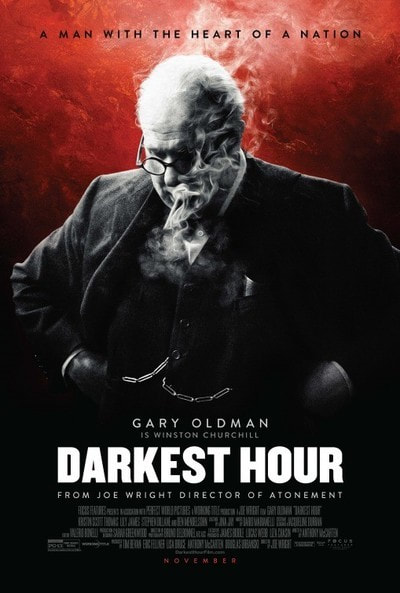
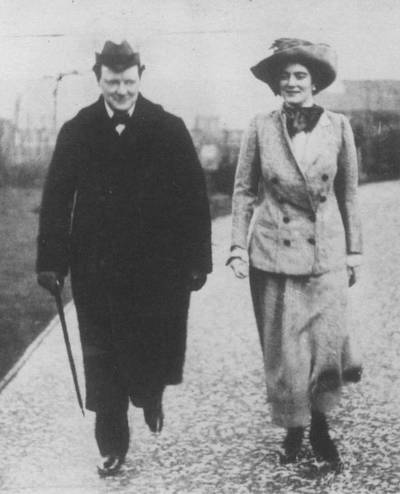
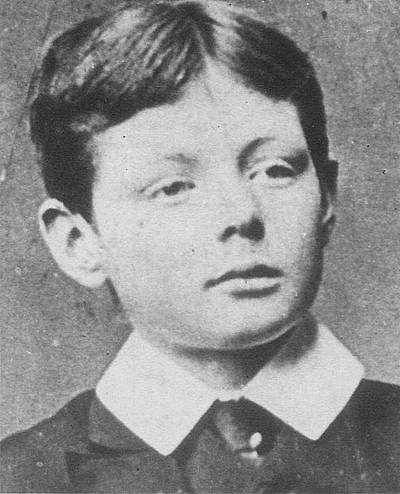
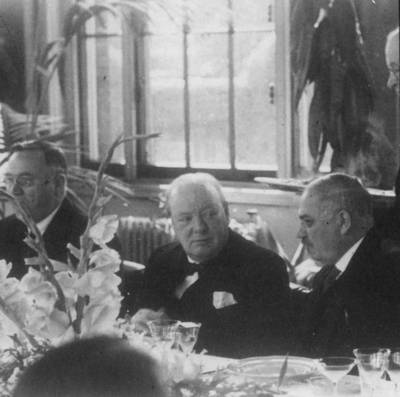
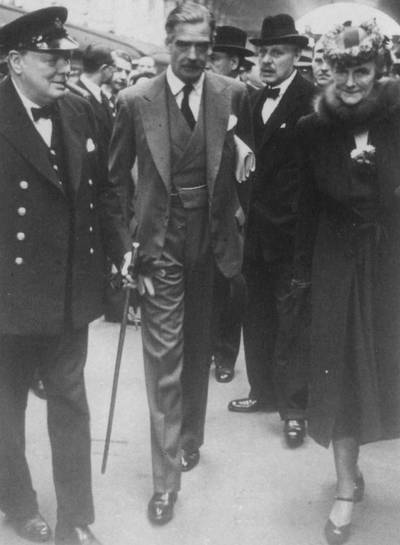
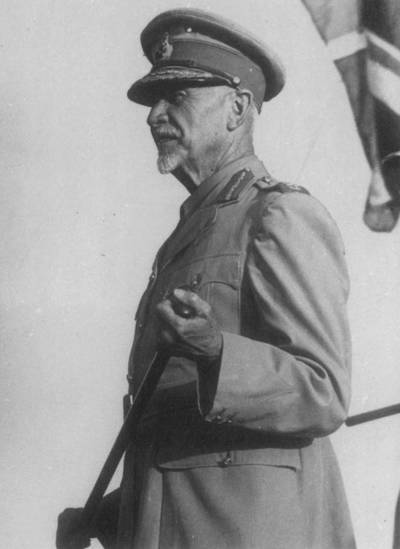
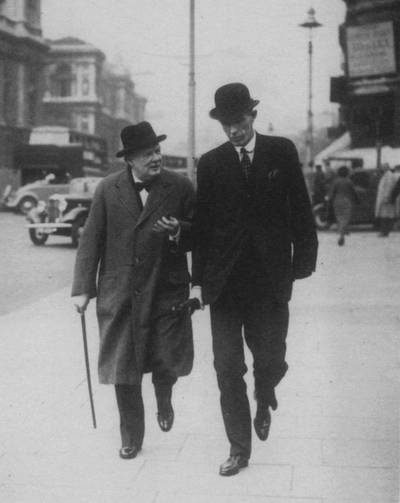
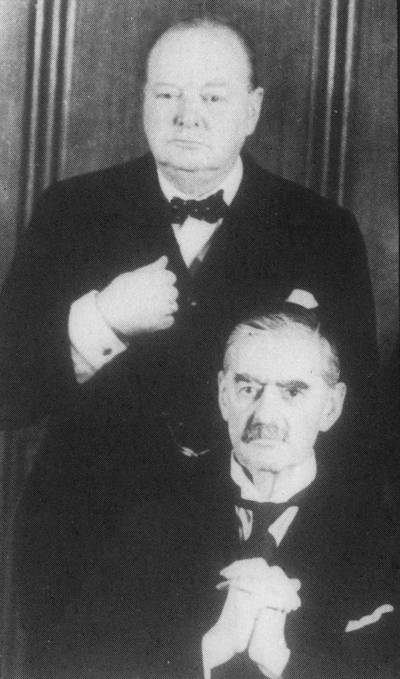
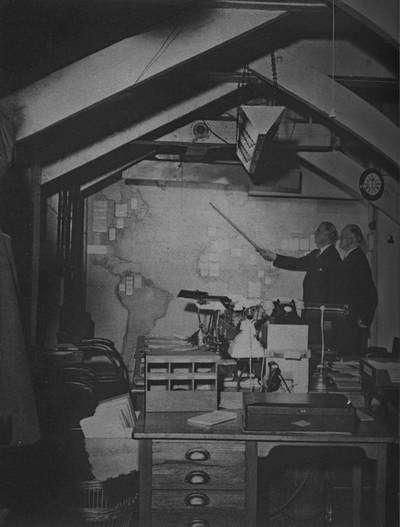
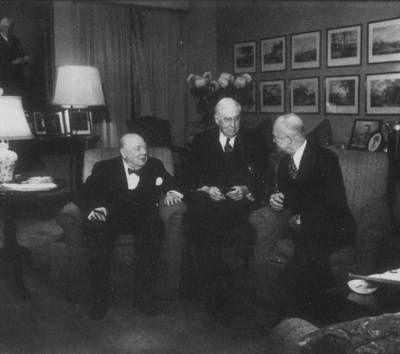
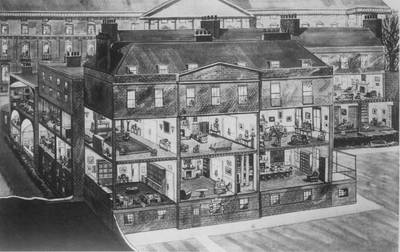
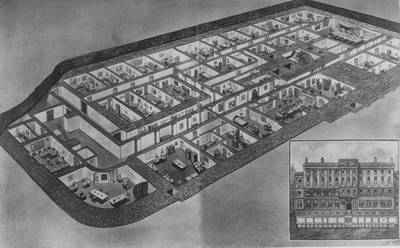
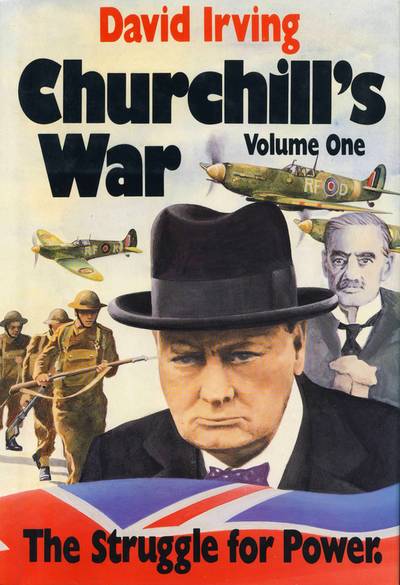
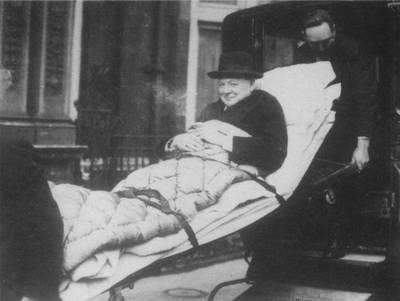
 RSS Feed
RSS Feed
